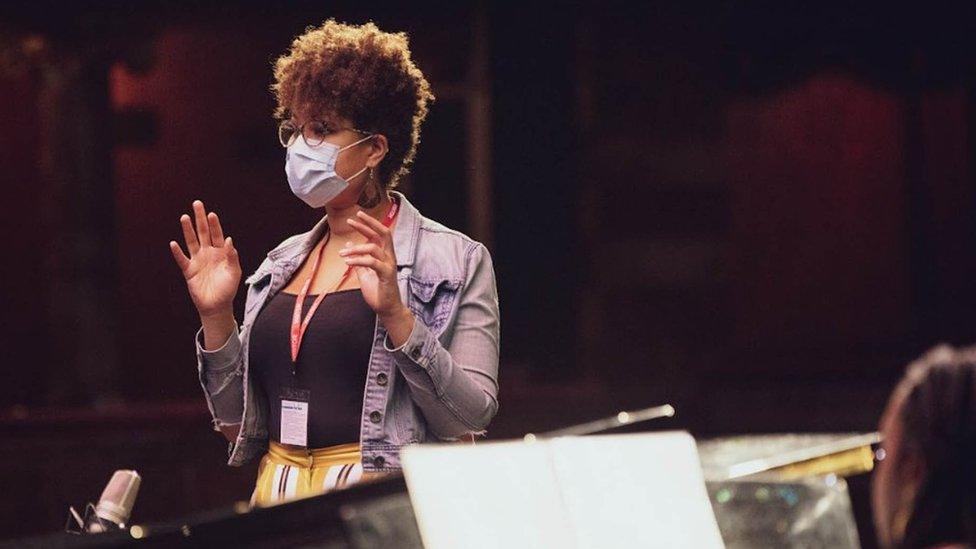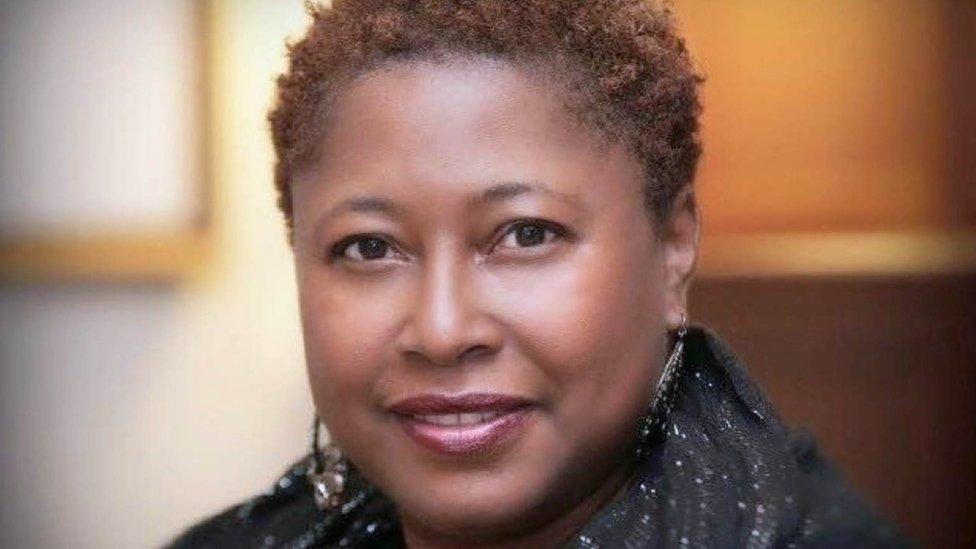Black History Month: Opera must be more accessible say theatre leaders
- Published

Simone Ibbett-Brown is directing a concert which brings together Mozart with the work of an 18th Century black composer
Two women working to diversify opera in the UK said they wanted to "demystify" the art and create opportunities for people of any race or background.
Alison Buchanan and Simone Ibbett-Brown have had their talent celebrated around the world during Black History Month.
Ms Buchanan, who started singing as a young girl in Bedford, is the UK's only black British female artistic director.
"You wait for a seat at the table and you realise you have to create your own table," she said.
She is based at Pegasus Opera Company in London, which works to "advocate, agitate and educate" the industry, to create opportunities for artists of African and Asian heritage.

Alison Buchanan believes the murder of George Floyd caused a shift in attitude in opera
"[Pegasus] has been tremendous in demystifying opera, making it accessible to people who wouldn't go to the opera necessarily, and reaching out to communities that opera companies don't tend to reach out to," she said.
"I think it just needs to be normalised, that representation... If people come to the opera and they see something they enjoyed, or there were people that look like them, they're more likely to come again."
She believes the murder of George Floyd by a police officer in the US in 2020 changed the industry.
"The doors were always shut and [in the UK] they were always very limited in their thinking about having diversity on stage," she added.
"After George Floyd died, we started having difficult, different dialogues with the opera companies, and they see things differently and optically, at least, they are doing the right thing."
'Silenced for their race'
Simone Ibbett-Brown, a freelance theatre maker and performer from Essex, is directing a concert that combines Mozart and Joseph Bologne, Chevalier de Saint-Georges.

Simone Ibbett-Brown said "magic" could happen when working with people "outside our experience"
The music of the black composer, revolutionary and slavery abolitionist was "erased" by Napoleon during the French Revolution.
"I think there are so many stories like this throughout history of people who were silenced for their race or their gender or their political affiliations, who have something amazing to offer artistically and historically," Ms Ibbett-Brown said.
She said it was vital that diversity was made a "top priority" in order to reap its rewards.
"Why would we tell the same old stories over and over again when there's so many exciting new ones out there," she said.

Find BBC News: East of England on Facebook, external, Instagram, external and Twitter, external. If you have a story suggestion email eastofenglandnews@bbc.co.uk, external
- Published20 October 2022

- Published27 May 2022
